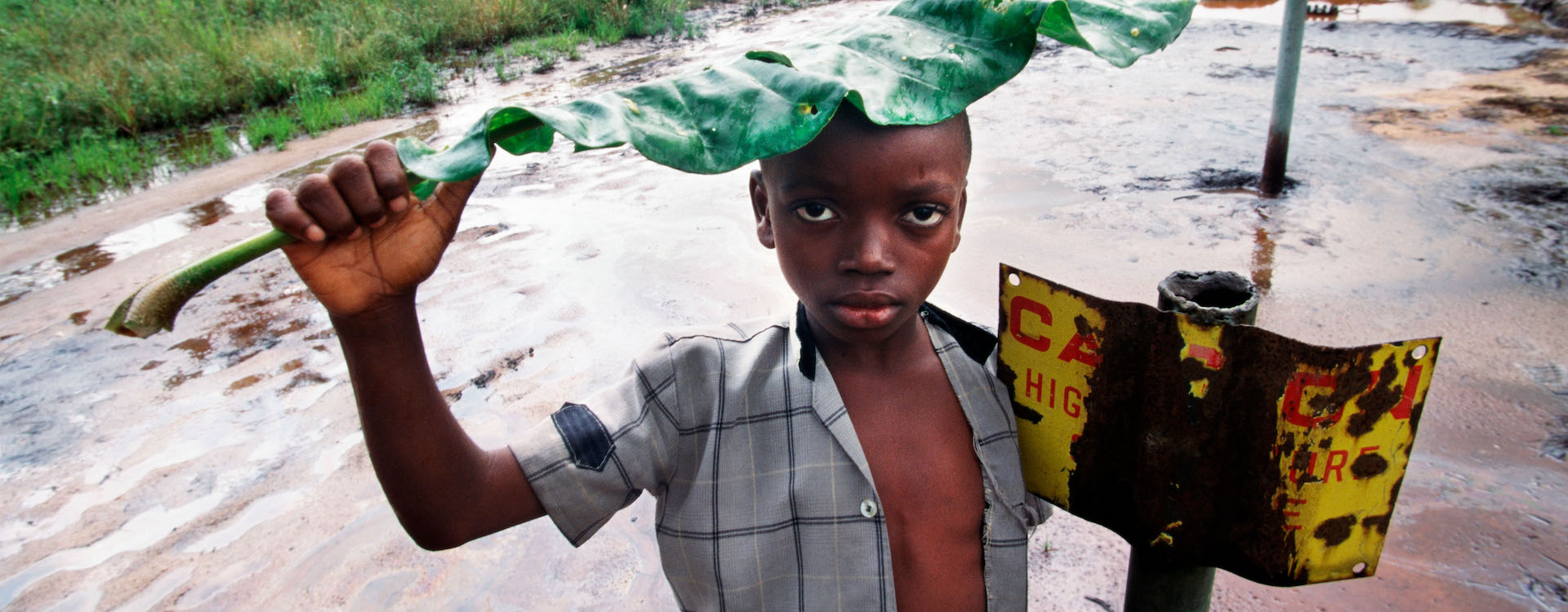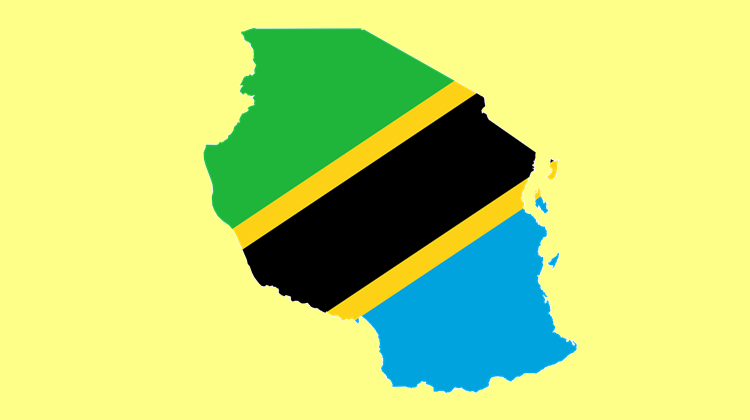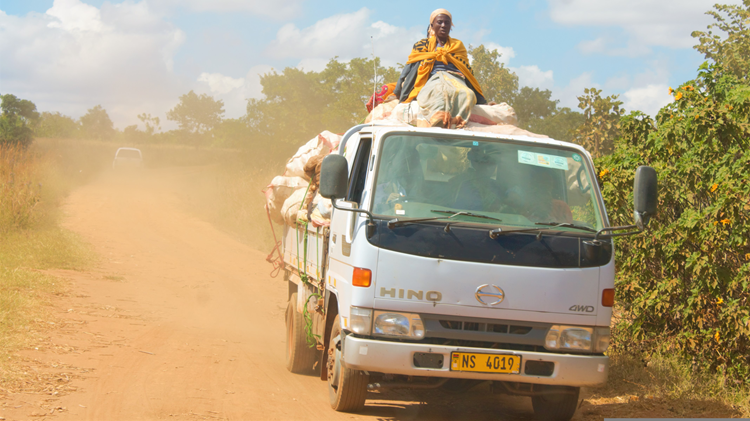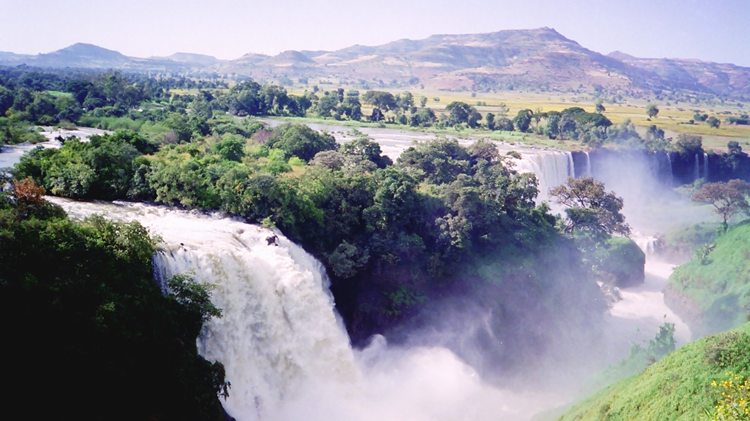Climate change could tip the Niger Delta back into a post-amnesty insurgency

By deepening environmental challenges and worsening poverty, climate change is creating the conditions for full-scale unrest in the region.
Oil exploration is putting the country’s fragile Niger Delta ecosystem at risk of extinction. On top of this, climate change costs Nigeria around $100 billion a year, and this could rise to an annual $460 billion by 2050. This is a double jeopardy for the country.
An average of 240 000 barrels of oil are spilt every year. This makes the Niger Delta, which sits directly on the Gulf of Guinea and the Atlantic Ocean and just about 3 m above sea level, one of the most polluted regions in the world.
Nigeria also reportedly has 123 flaring sites in the region, making it the highest emitter of greenhouse gases in Africa, with carbon dioxide emissions in the area among the highest in the world. Spills and gas flares have wiped out entire plant species, like the local cocoyam, which was previously widely planted in the region.
As far back as 2011, a 14-month United Nations Environment Programme independent scientific assessment determined that it could take 25 to 30 years to clean up pollution from over 50 years of oil operations in the Niger Delta. This with an initial investment of $1 billion for the first five years. More than a decade later, oil spills continue, and the region is battling with the dire effects of climate change, deepening the region’s existing environmental issues and poverty.
Each state in the Niger Delta should establish a peace commission with skills of mediation in resource-based conflicts
Apart from the Middle East, with a long history of interminable crises, the Niger Delta is the world’s most studied region. Literature on the area aptly captures the oil pollution problem, conflicts and livelihood challenges. Yet the emerging problems of climate change, its intersection with oil pollution and the risk of violent conflicts remain mostly uncharted.
There’s a strong reciprocal relationship between oil pollution and climate change in the area. It’s well established that oil pollution contributes to climate change. But it is often downplayed that climate change is a global challenge with localised impacts that are worse in already fragile and polluted environments like the Niger Delta.
Climate change has led to increased coastal erosion, higher storm surges, flooding, inhibition of primary production processes, more extensive coastal inundation, and changes in water and soil quality in the region. These have deepened numerous issues affecting habitats and general communal functions, including preservation of arts and mobility.
Every year flooding, erosion and sea surge destroy ancient drawings, carvings, monuments, clay houses, and clay ware such as pots for water, eating, cooking, music, wine, rituals, saving money and more. Water damage to road infrastructure also makes many communities inaccessible.
The region’s federal and state governments have paid little attention to climate change mitigation and adaptation policies
The economic problem of climate change is global. But for the Niger Delta the issue is beyond economics. The fact that a mild 0.2 m rise in sea level would lead to about 200 villages being displaced, while a projected sea level rise of over 1 m could flood much of the region and displace 80% of its population, puts the region on the verge of extinction.
The Koluama community in Bayelsa state has been forced to migrate to other locations as a result of this rise. Also, the Ayetoro community in Ondo State has lost over 10 km of its land to sea surge. States in the region have been exposed to the consistently huge floods that occur from September to November every year, and residents experience massive displacement as a result.
The 2022 floods alone cost Bayelsa State ₦2 billion in extra-budgetary funds. This year the state has already budgeted ₦77.92 billion (20% of the proposed total ₦385.2 billion budget) to tackle flood issues, especially the repair of flood-impacted infrastructure. Significant gully erosions have washed away homes and even whole communities, heightening intra- and inter-communal land disputes. Prominent examples include the erosion experienced across communities like Obogoro and Obunagha.
Niger Delta inhabitants have long expressed their concerns about the environment through writing, art, music, protests and violence. The most cited protest is the 12-day revolution launched by Isaac Boro’s Niger Delta People’s Volunteer Service in 1966 that was suppressed by the military administration. Dissent has continued in the region since then, when oil-producing communities launched protests calling for the attention of the state and multinational oil companies to deal with environmental issues in the region.
The climate change-conflict nexus in the Niger Delta is linked to its impact on economic growth, resource availability and poverty
The most pronounced of these efforts was the agitation of the Movement for the Survival of the Ogoni people. After a breakdown in negotiations and relations, Ken Saro-Wiwa and eight other leaders were executed by the Sani Abacha regime in 1998, which led to full-scale violence and hostilities that lasted from 2005-9.
By 2009 these activities had driven the Nigerian economy to the brink, leading then president Umaru Musa Yar’Adua to introduce the Presidential Amnesty Programme to disarm, demobilise and reintegrate combatants. This also involved vocational training and monthly cash payments to repentant combatants, and erstwhile militant leaders being awarded lucrative pipeline surveillance contracts to protect oil installations in the region. Oil production in Nigeria rose from around one billion barrels a day in 2008 to 2.6 billion barrels a day in 2011.
Nevertheless, the fundamental issues that triggered the insurgency in the region remained unaddressed, and tension resurfaced in January 2016 with attacks on oil installations from the Niger Delta Avengers.
The Presidential Amnesty Programme neglected the environmental and socio-political drivers of violence in the region. Issues of environmental pollution and climate change with the accompanying loss of livelihoods and pervasive poverty were side-stepped. The disarmament process relied on the voluntary submission of arms, not accounting for stowed-away caches. The demobilisation programme also failed to dismantle existing criminal networks.
Oil exploration is putting the country’s fragile Niger Delta ecosystem at risk of extinction
Repentant combatants evolved into a class of their own, existing outside the rest of society as ‘ex-militants’ and not civilians and enjoying political patronage. With hidden arms caches and motivated by subsisting militia networks enjoying political patronage, the region has now witnessed a proliferation of sea pirates and cult groups. The emerging Force of Egbesu pledged to scuttle the 2023 polls if the government didn’t develop the oil-rich Bashan Clan in Bayelsa State and reward them for services rendered to both the All Progressives Congress and the Peoples Democratic Party.
The structures of violence and the socio-economic indicators that promote it in the Niger Delta remain. The region only needs a trigger to tip the scales back to one of full-scale unrest, and climate change is actively playing this role by deepening the environmental challenges and worsening poverty.
The climate change-conflict nexus in the Niger Delta is linked to its impact on economic growth, resource availability and poverty. The dominant livelihood activities in the region are fishing and farming, which are adversely affected by the changing climatic and environmental impacts leading to deepening poverty.
The calamitous effects of climate change, such as desertification and drought, have also exacerbated the southward movement of herders from different parts of the North East and North West of Nigeria to the Niger Delta. This is making the region an epicentre for farmer-herder conflict – a conflict previously foreign to the region.
Climate change costs Nigeria around $100 billion a year, and this could rise to an annual $460 billion by 2050
Despite the climate change-conflict nexus building up in the Niger Delta, the region’s federal and state governments have paid little attention to climate change mitigation and adaptation policies, especially regarding livelihood challenges. Instead the state has found a way to sustain the petro-economy and strengthen the pre-existing structures of violence through surveillance contracts, with bids for these contracts, among ex-militants, leading to inter- and intra-gang violence.
Climate change in the Niger Delta with its worsening poverty levels have made few other economic opportunities viable outside of illegal oil refining, creating criminal networks to be patronised by politicians or fighting for surveillance contracts. If this isn’t properly addressed, the next administrations – at the federal and state levels – will have to deal with another large-scale insurgency. This time it might be more difficult to manage.
The federal and state governments should commission extensive research into the impacts of climate change in the Niger Delta, with a special focus on flooding, erosion and livelihood challenges. The government must urgently begin and complete existing shore protection and land reclamation projects in coastal communities. Agricultural extension workers should be engaged to train community members on new farming, fishing and storage techniques that suit the reality of climate change.
Every state in the Niger Delta should set up a special flood and erosion commission for planning and rapid response during emergencies. Each state should also establish a peace commission with skills of mediation in resource-based conflicts. The government should provide livelihood opportunities to peaceful youths who bear the environmental problems in silence as the amnesty programme and various surveillance contracts already portray a negative perception that might is right.
Sixty-six years after the Willink Commission of 1957 described the Niger Delta as poor, backward and neglected, the region is violence-ridden and faces extinction. This is a challenge the government, civil society organisations and citizens must not trivialise.
Image: © Friedrich Stark / Alamy Stock Photo






